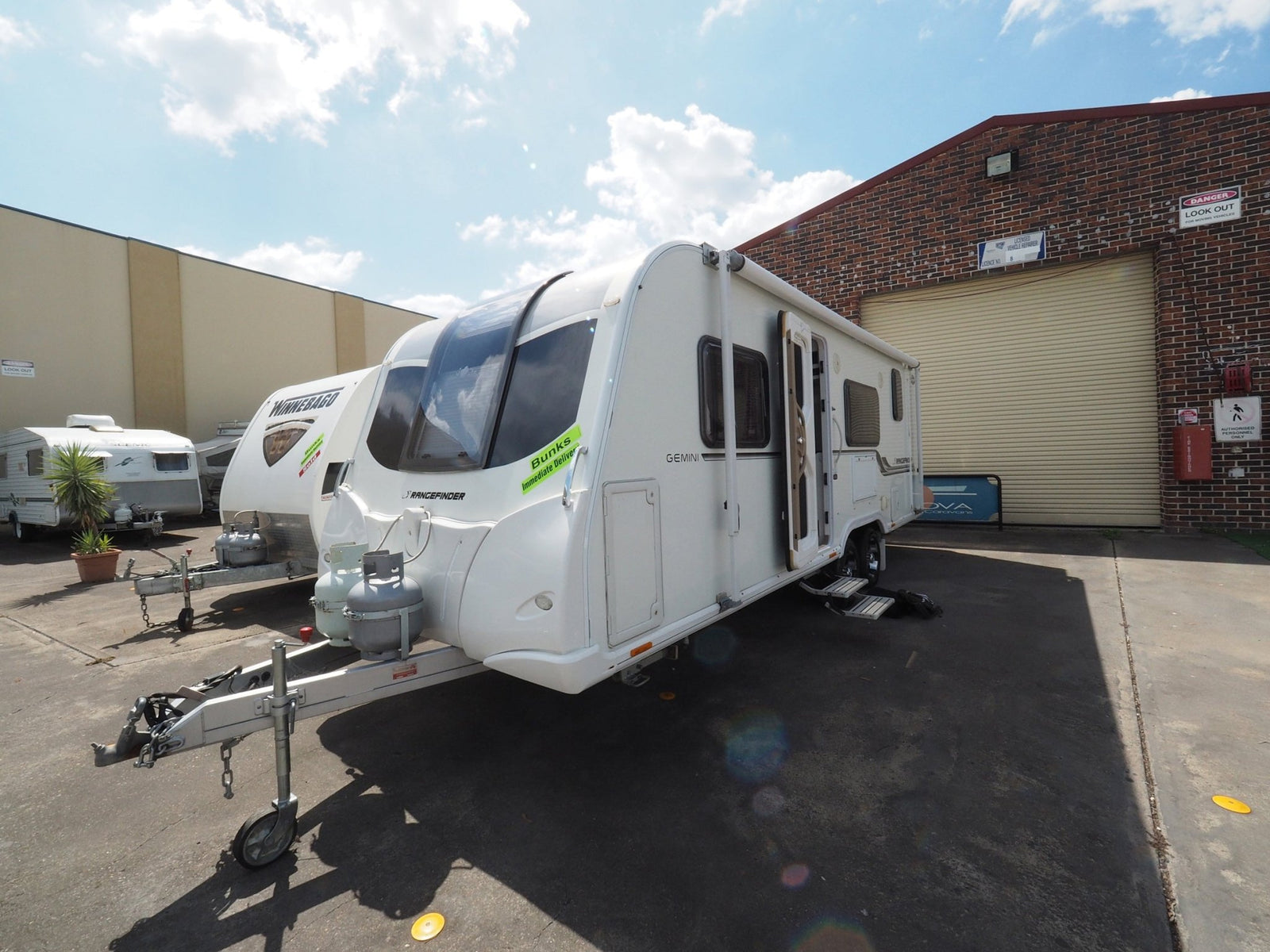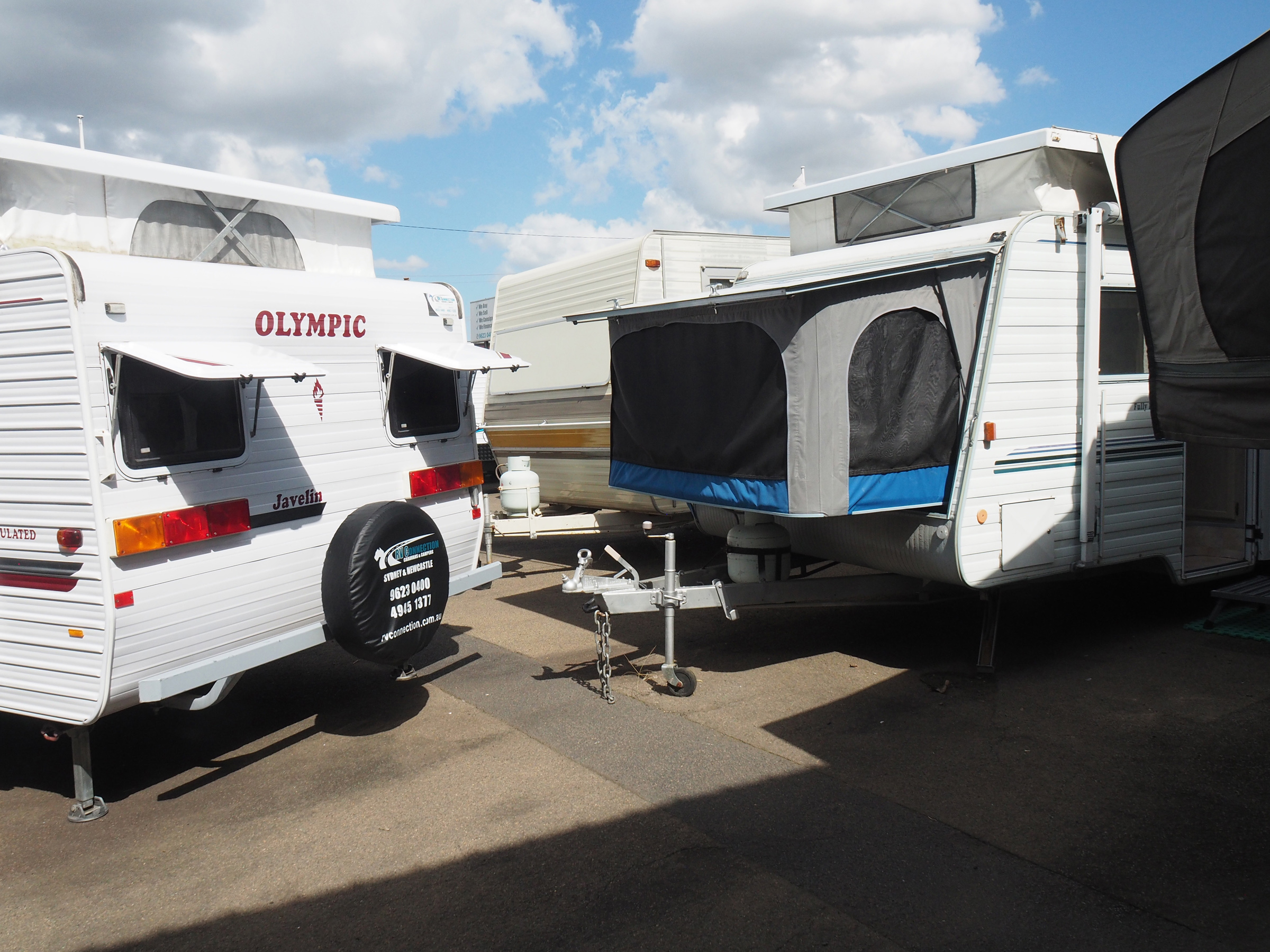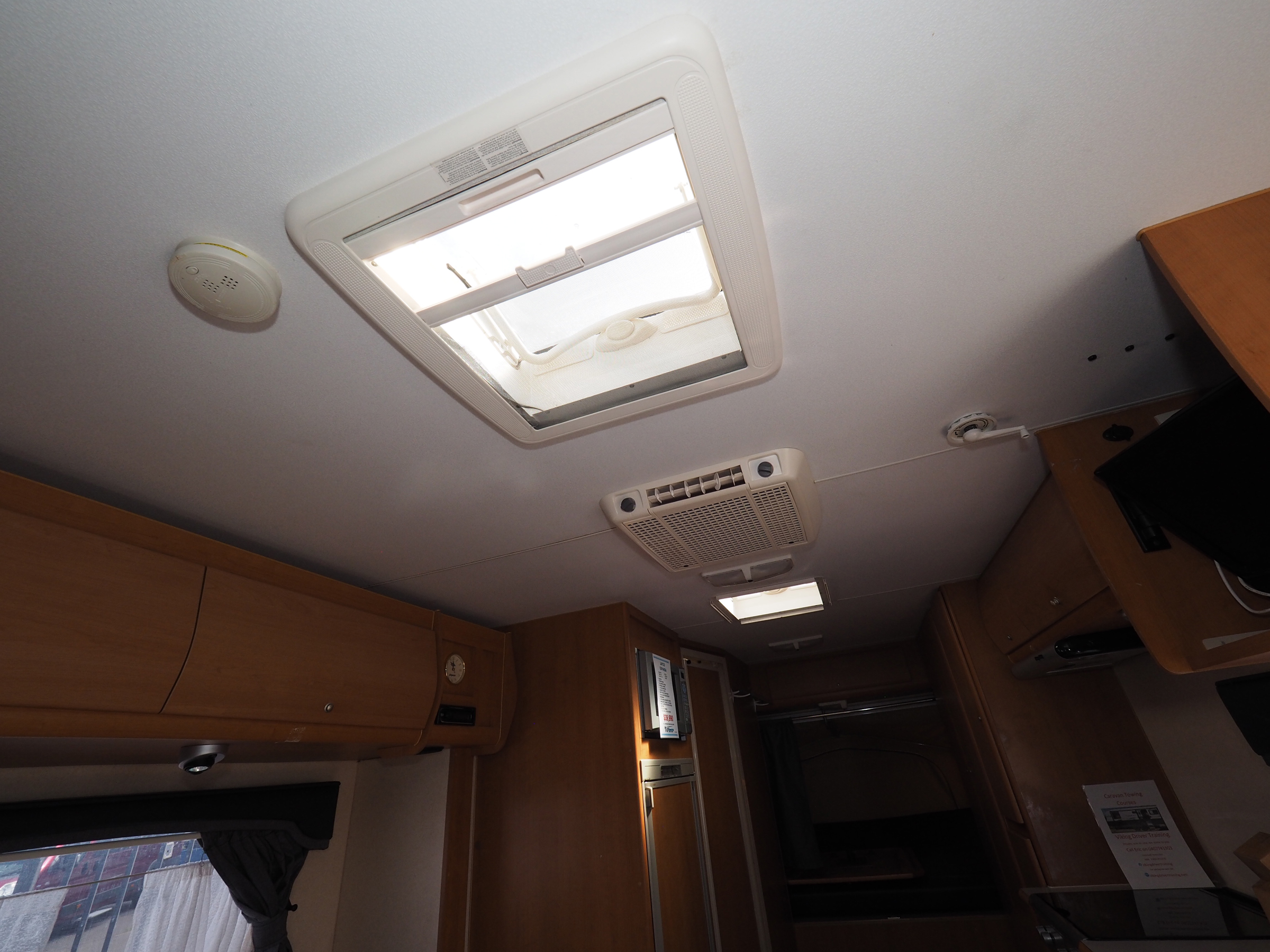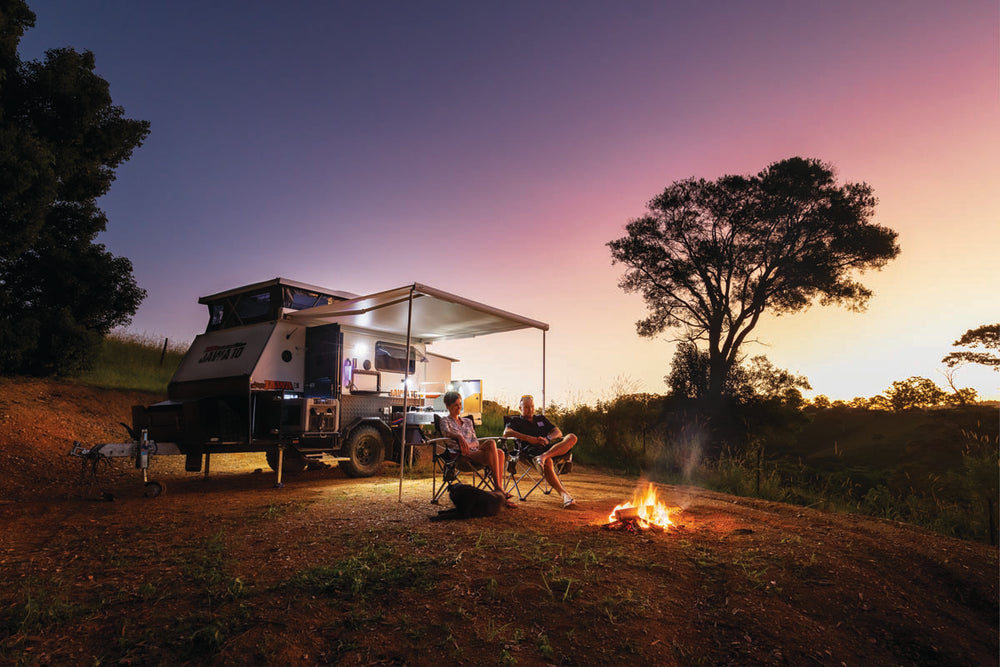Pleasures and Pitfalls of a Pre-loved Purchase

For most people, buying a caravan or motorhome is one of the major purchases in life. Budgets don’t always run to shiny new recreational vehicles (RVs), so considering a pre-owned model is the next best option.
Anyone familiar with the RV market will know that it’s changed somewhat over the last couple of years. In the new vehicle market, delivery times have stretched out considerably, and prices have increased as well. That, in turn, has affected the second-hand market both in stock availability and price — something to keep in mind before handing over any hard-earned cash.
Pre-purchase Thoughts
One of the first things to consider in the purchase of any RV is budget, not only for the initial purchase but future running costs as well. That should be done in tandem with considering your basic requirements for your dream mobile home.
Research is the key here and the internet is your friend. Just Google something like ‘used caravans’ and several sales sites for both dealers and private sellers will immediately pop up. These will give you a very good idea of what’s currently available and what prices might be like — keep in mind that dealer prices are likely to be more expensive than private buyers.
There’s nothing like touchy feely though. Be prepared to go around all the dealerships in your city or town and see exactly what’s available. This is important at the moment because while researching this article, I visited a couple of local dealers and both had little pre-owned stock on display. In both cases there were very few late model caravans, though motorhome buyers were a little better off, with a reasonable selection at one of the dealers I checked out.
If you are buying privately, be prepared to travel around and spend time looking at your possible purchase on an individual basis. A downside of a private purchase is there’s not a collection of vans together for easy comparison.

Layout and Length
For new players to caravanning, deciding on what layout you want can seem daunting but it’s not really. Certainly, having a look at a few different layouts can give you a feel for what might suit. Digressing slightly here, on my dealer tour I saw a couple of layouts that I quite liked but are no longer available in contemporary caravans, something to keep in mind if you are looking for something a bit different.
Sleeping arrangements are an important consideration — are you going to need a double bed, single beds, corner bed, island bed, or, in the case of a family, bunk bed?
Another is the kitchen. Cooking is a daily activity, but we all do things differently. How do you like to cook? Like me making heavy use of the microwave oven or do you prefer a conventional oven and separate grill?
An ensuite is often considered almost a pre-requisite now, and many upmarket vans these days have a shower and toilet. But they add both weight and length,so if you are planning on staying mostly in caravan parks, will you want those items?
One way of helping to decide all these things is to actually hire a van or two and get a good feel for what you like and don’t like.
A final consideration in your choice of van is your tow vehicle — knowing your vehicle’s overall towing weights limit and maximum ball weight can avoid an expensive mistake later.
Preliminaries
One of the benefits of buying a used caravan as opposed to either a motorhome or even a car, is that a caravan has few mechanical components that are subject to wear and tear.
When checking out used vans, it’s a good idea to have a notebook, tape measure and small torch with you. Keeping notes on what you are looking at and pricing is good for later consideration. The tape measure is handy if you have any length or height considerations, like a carport or driveway. Note that when a van is described as being a 17ft 6in model, that may well be the internal length or some reference point by the manufacturer but not necessarily the actual external length. A torch is handy for both looking underneath the van and inside all cupboards.
When looking around a caravan or motorhome, spend time actually just sitting in them. In your mind and practically when you can, go through the motions of actually living in the van. Think about the position of everything and whether the layout will be convenient for your particular needs.
Inspection Time
When a possible purchase is discovered, it’s time for a closer inspection. Like any vehicle, a bright sunny day is best for this.
An inspection can be as thorough as you like, both outside and in, and don’t forget to look underneath your prospective purchase. There are definitely a few things to be learned there, things like stone damage and dust and dirt everywhere might suggest many miles travelled, as does the condition of the suspension.
Looking at the tyres, tread wear is a fairly obvious item but a check on the wall condition can be revealing as well. Tyres age just by standing around in the sun doing nothing.
On the drawbar, the gas cylinders should be within their legal life of 10 years and both the coupling and handbrake should be checked.
Beautiful Body
Around the outside, a caravan is going to have a few dings and scratches, but any serious dents might suggest something more serious. Opening all the doors, windows and external bin doors is a simple check to make sure everything, including the weather seals, are functioning. Check the front boot and any other storage bins while you’re at it. There will almost certainly be plenty of signs of dust and dirt but signs of water are another matter
If possible, inspecting the roof area isn’t a bad idea. Bodgy sealant repairs can be revealing, as can a sagging roof line and it’s a simple check to make sure all the solar panels, if fitted are in good order.
Still on the roof subject, pop-top caravans are in a class of their own in respect of the rising roof. Make sure it goes up easily and also stays up! Gas lifters (if they are used) do have a ‘life’. The vinyl gusset should be inspected for any holes, tears and water stains. The same applies to caravans with extendable end, make sure the canvas or whatever material is used, is in good order and not damaged or mouldy.
Inside
Inside your prospective van, have a good look around in all the cupboards, under seats and mattresses, across the ceiling and around the windows — mainly for leaks and any not easily explained damage. Shower units should also be inspected closely for leaks, especially floor joints of those not built as a one-piece unit.
While looking around, don’t forget to check that everything, e.g. doors, cooker, fridge, water pump, water heater, space heater and lights function correctly. If you are planning some serious inspection time, get the owner or salesman to turn the fridge on when you start. By the time you have nearly finished, the fridge should have started cooling.

Motorhomes and Campervans
Whilst the ‘house’ part of a motorhome can be checked out in the same way as a caravan, there is also the mechanical component as well. Certainly for anyone contemplating a motorhome purchase, a test drive is pretty much mandatory. Anyone not used to motorhome driving will find the road noise higher and almost certainly more squeaks and rattles than you are used to, but that’s fairly normal.
A mechanical check by someone competent is also certainly recommended as repairs can be expensive! Be a little wary of a motorhome that has been stored for several years without use — lubricated parts and seals can dry up and, as noted earlier, tyres can degenerate even when not being used.
Providence
In today’s world, particularly if you are buying from a private seller, there are some other checks that need to be made, like whether your prospective purchase has been stolen or if it’s encumbered in some way. See the Personal Property Securities Register (PPSR) (ppsr.gov.au) or something like the Stolen Caravan Registry (stolencaravanregistry.com.au/stolen-vehicle-check/) for more details. Each state has its own vehicle check site too.
Scams
Sadly, in today’s world, in anything to do with the internet, scams are rife. There are a number of variations. One of the more obvious is a price that seems too good to be true — frequently it is, and a little knowledge here goes a long way.
There are a number of variations on this scam but one that always amuses me is when caravans and motorhomes not available for sale in this country are advertised as special deals. Other variations include a seller who claims to be out of town and requests dealing with a third party or someone who requests an upfront payment before the van is sighted.
Then there’s so called phishing links. Someone might send you a caravan for sale link in an email. If you really want to look, manually type the URL into your browser search bar. That might sound fiddly, but it might keep hackers out of your computer. I have to say it’s best to avoid any unseen purchase.
Finally
All that might seem like a long list but given any caravan or motorhome is going to be an expensive buy, taking the time to research the market and thoroughly inspecting your possible purchase is going to be well worth the effort.
The Next Steps
A camper trailer, caravan or motorhome could be what you need to add more adventure to your weekends, check out these models available for sale on TradeRVs and enquire about any of the products available.







